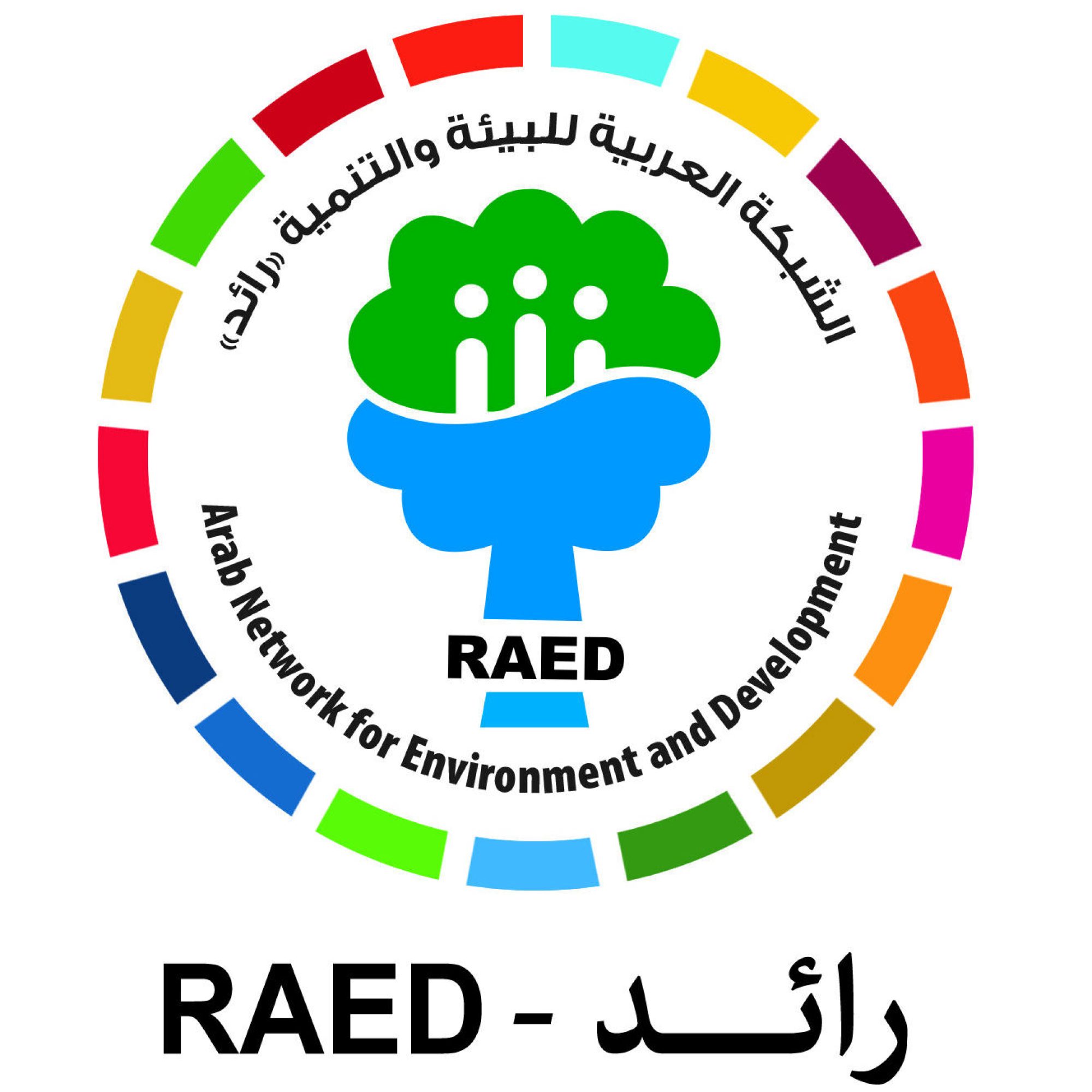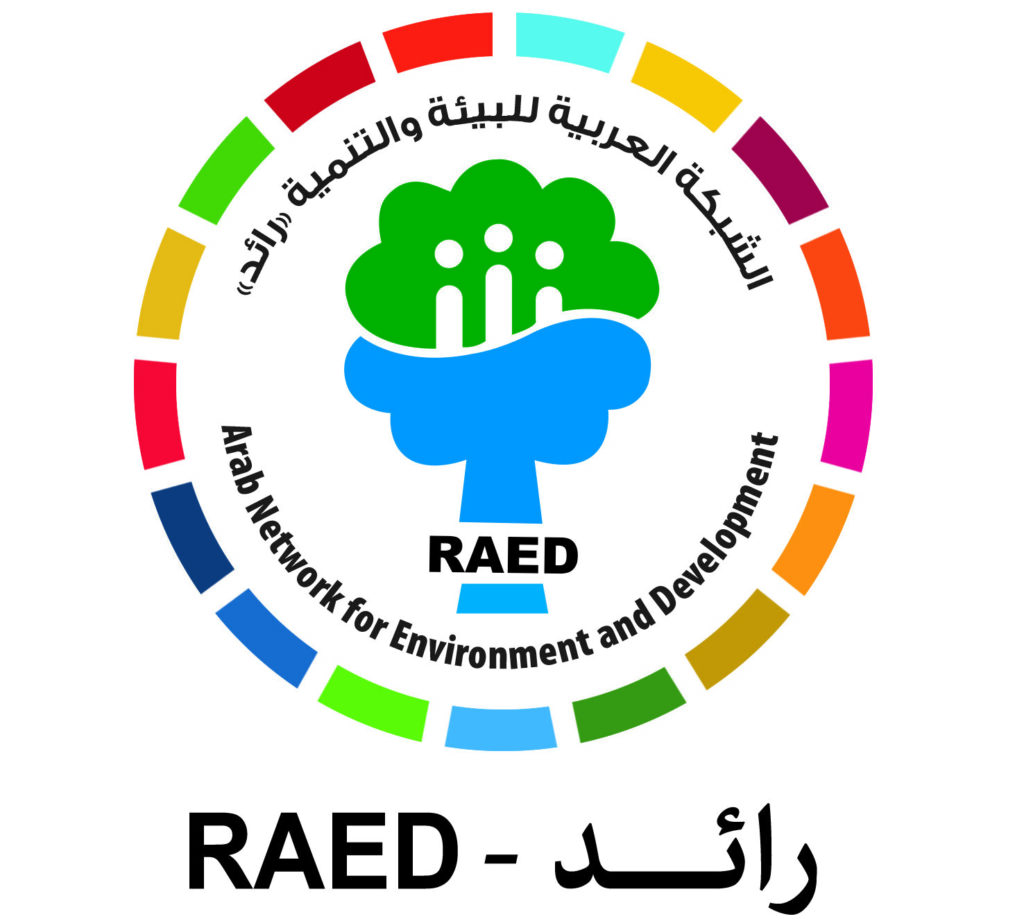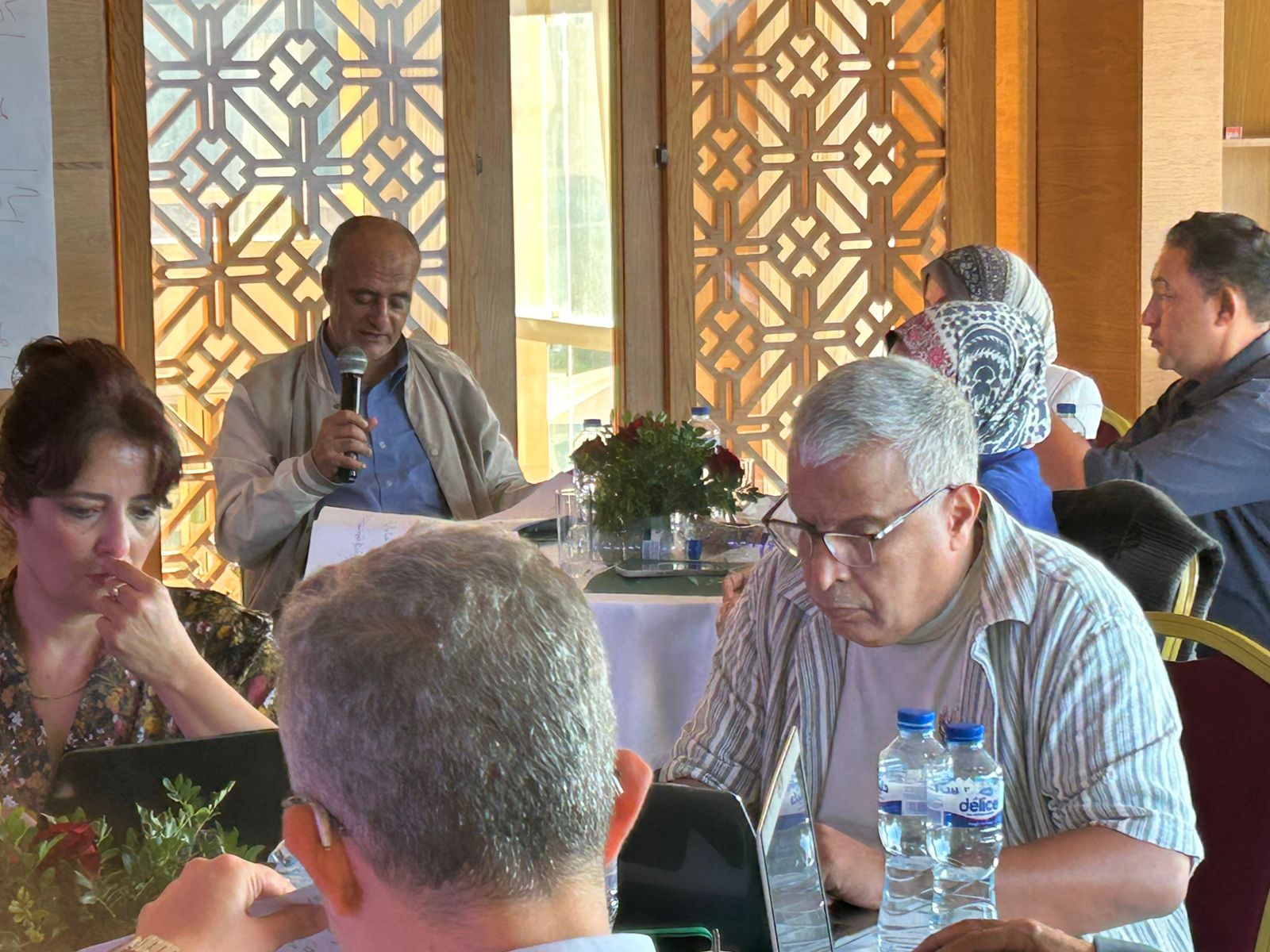RAED Showcases the Role of Civil Society in the TeraMED Initiative at a Regional Conference in Tunisia on the Just Energy Transition
The Arab Network for Environment and Development (RAED) participated in the Regional Conference on “Just Energy Transition in the Middle East and North Africa: From Vision to Implementation”, held in Korbous, Tunisia, from 18 to 21 October 2025. The event was organized by the Natural Resource Governance Institute (NRGI) with the participation of representatives from governmental institutions, civil society organizations and energy and media experts from five Arab countries, Egypt, Tunisia, Morocco, Iraq and Lebanon.
During the conference sessions, RAED presented its experience in supporting a just transition toward clean energy, through coordinating the efforts of civil society organizations in the Arab region under the TeraMED Initiative, a regional platform for cooperation and knowledge exchange between civil society and research institutions across the Arab and Mediterranean regions. The initiative aims to promote a fair and inclusive energy transition, encouraging the adoption of development policies that integrate social and environmental dimensions in the shift toward a green economy.
Mahmoud El-Eisawy, journalist and Editor-in-Chief of Josour 2030, who represented RAED at the conference, explained that the TeraMED Initiative serves as a practical model of multi-stakeholder collaboration between civil society, the public sector and the private sector. The initiative focuses on building the capacities of local organizations in energy efficiency, resource management and renewable energy, while also engaging local communities in decision-making processes related to the just energy transition.
He highlighted that the initiative has successfully forged partnerships with a number of organizations and academic institutions across the Southern and Eastern Mediterranean to promote knowledge exchange and best practices in sustainable energy policy.
El-Eisawy added that RAED’s participation in the conference provided an opportunity to showcase its community dialogue initiatives on energy and to present a range of studies and policy papers developed by the Network in collaboration with Arab regional partners. These studies explore the social and economic impacts of the shift toward clean energy, particularly in rural areas and economically vulnerable communities.
Conference discussions also deeply examined the concept of the “Just Energy Transition”, emphasizing the importance of fair distribution of the benefits and costs of the transition while ensuring that the needs of the most affected groups are addressed.
RAED’s presentation included an overview of field activities implemented under the TeraMED Initiative in several Arab countries, focusing on local capacity-building and youth-led initiatives for sustainable energy transformation. Activities included awareness campaigns on energy conservation, workshops on decentralized solar energy technologies and support for small green innovation projects.
The RAED representative also took part in a panel discussion on the role of civil society organizations in accelerating the just energy transition, stressing the need for integrated collaboration among all stakeholders. He emphasized the crucial role of civil society in shaping national energy policies to ensure alignment with the Sustainable Development Goals (SDGs) and the Paris Agreement on climate change.
RAED’s presentation received wide engagement from conference participants, who commended the TeraMED Initiative as a successful regional model of environmental and community integration that could foster effective Arab partnerships in advancing the just transition toward clean energy.
The conference concluded with a set of key recommendations, including:
- Expanding regional cooperation on sustainable energy issues;
- Promoting experience exchange between community-based initiatives and projects;
- Ensuring youth and women’s inclusion in clean energy transition programs;
- Enhancing public awareness of the economic, social, and environmental dimensions of energy transition; and
- Strengthening regional civil society networks, notably RAED, to serve as active platforms for capacity-building, knowledge dissemination, and the promotion of climate justice across the Arab region.


